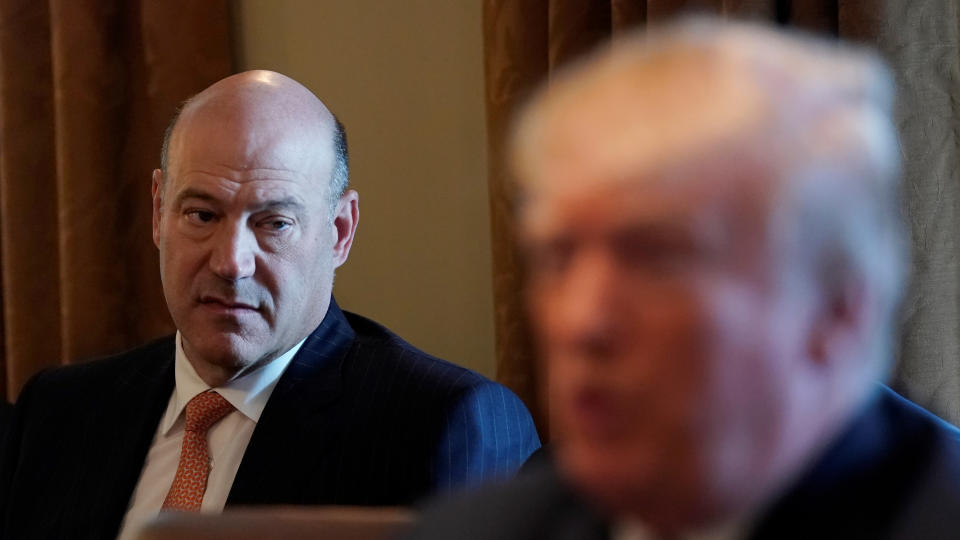Former Trump advisor Gary Cohn: Markets are down on the '100% probability' that stimulus deal won't pass before the election
On Monday in Washington, the stimulus negotiations marched on as they have most days. The two sides traded charges in dueling Fox News and MSNBC appearances while Speaker Nancy Pelosi and Treasury Secretary Steven Mnuchin met yet again to go over their differences.
In the meantime, the markets tanked. The Dow dropped more than 650 points, or 2%. It was the largest decline for the index in 7 weeks. The S&P 500 and Nasdaq each also retreated sharply.
A big reason for the slide, according to Gary Cohn, former president and CEO of Goldman Sachs and former White House National Economic Council Director, is the “100% probability” that we are not going to get fiscal stimulus before the election.
“I think now eight days away from an election, no one thinks we're going to have fiscal stimulus until after an election,” Cohn said.
See also: Gary Cohn wants $1 trillion to save the U.S. economy
Adding to the uncertainty were signals from Washington that after the Senate confirms Amy Coney Barrett to the Supreme Court, Capitol Hill will be a ghost town until Nov. 3. Lawmakers are set to return home for the voting and have all but given up passing any deal before voters go to the polls.
‘3 unknowns’
Stimulus was just one of the “three unknowns” that Cohn laid out Monday during a conversation with Yahoo Finance’s Adam Shapiro at the All Markets Summit to explain the volatile day on Wall Street. The trading sessions also saw the S&P 500 index (^GSPC) have its worst day in over a month, dropping 1.8%.

“We know that the market does not like unpredictability,” said Cohn, who served as the 11th director of the National Economic Council, from January 2017 until April 2018.
In addition to the stimulus stalemate, two other sources of volatility drove the market lower, according to Cohn. “Number one, we've clearly seen the COVID virus numbers come back up,” he said, pointing to the record number of cases in recent days, as well as a rise in deaths.
“You want to call it the third wave or an extended first wave, no matter how you look at it, it's not good news,” Dr. Anthony Fauci, the nation’s top infectious disease expert, said in another interview with Yahoo Finance.
Cohn also pointed to “volatility around the election” as a reason for investor uncertainty. The RealClearPolitics average of polls still gives Joe Biden a commanding advantage, but Republicans have been touting a better-than-expected performance by President Trump at last week’s debate and are looking ahead to Thursday when the third-quarter GDP number is set to be released and may give Trump a boost.
“We're going to get a big GDP number,” said Larry Kudlow, Gary Cohn’s successor, on Monday.
Ben Werschkul is a producer for Yahoo Finance in Washington, DC.
Read the latest financial and business news from Yahoo Finance
Follow Yahoo Finance on Twitter, Facebook, Instagram, Flipboard, LinkedIn, YouTube, and reddit.
More from All Markets Summit:

